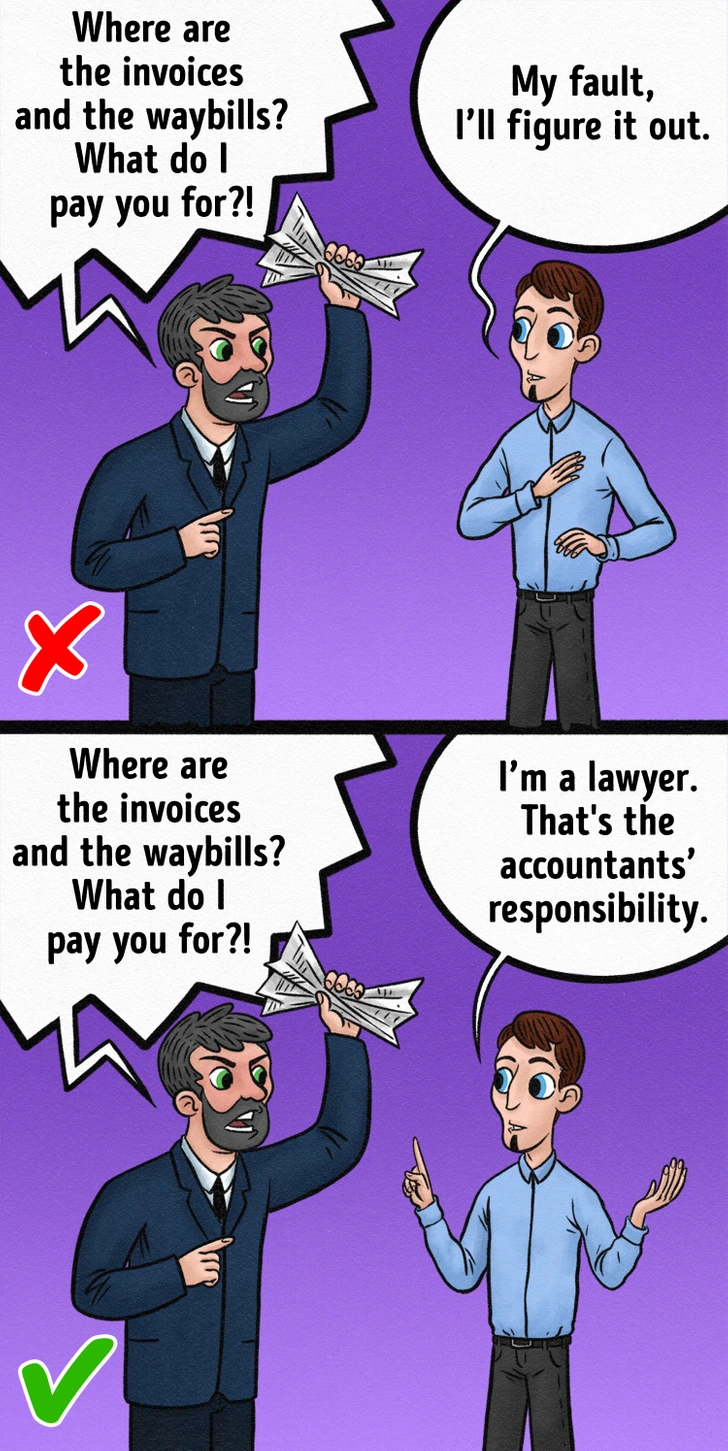We’ve all experienced it at some point. Someone offers to help, making you feel grateful, but soon enough, that act of kindness starts to feel like a trap. Suddenly, you’re caught in a web of manipulation. The problem with manipulation is that it often disguises itself as genuine concern or support. It’s important to recognize the signs so you can stay in control of your emotions and avoid being taken advantage of. Let’s dive into the world of manipulation and explore how you can protect yourself from emotional exploitation.
Understanding Emotional Manipulation
Manipulation occurs when someone uses deceitful tactics to control your emotions, decisions, or actions for their own gain. It’s a subtle game, often leaving you feeling confused or guilty, unsure whether you’re dealing with kindness or control. To defend yourself, you need to spot these behaviors early and take steps to safeguard your well-being.
1. The Emotional Blackmailer: Guilt as a Weapon

The emotional blackmailer is a master at using guilt to manipulate you. They often say things like, “If you really loved me, you’d do this,” shifting the burden onto you to prove your loyalty or love. These statements make you feel obligated to meet their demands, leaving you emotionally drained.
Over time, you might start to prioritize their needs over your own, feeling as though you’re walking on eggshells to avoid conflict. Emotional blackmailers excel at making you doubt your worth, making you question whether you’re supportive enough. This constant emotional strain can strip away your autonomy.
Protect Yourself:
Establish clear personal boundaries and learn to say “no” without guilt. Assertiveness is key. You’re not responsible for proving your love by sacrificing your well-being.
2. The Helpless Act: Manipulation Disguised as Vulnerability

Beware of the “helpless” manipulator. This tactic involves playing the victim, pretending they’re incapable of handling tasks or responsibilities, so you step in to save the day. While it’s natural to want to help, manipulators take advantage of your kindness. Often, they get ahead by leaning on others for assistance.
While this behavior is common among women, men increasingly resort to this tactic as well. The helpless manipulator seems to effortlessly move up in life, but it’s always at the cost of someone else’s time and effort.
How to Handle It:
Recognize when someone is exploiting your kindness. It’s okay to offer help, but not at the expense of your own energy and well-being. Practice saying “no” when necessary.
3. The Gaslighter: Twisting Reality

Gaslighting is a subtle but damaging manipulation technique. The gaslighter will twist your words, actions, and experiences to make you doubt your perception of reality. They often claim, “You misunderstood,” or deny having made promises, leaving you feeling confused and off-balance.
This tactic can make you question your memory and judgment, allowing the manipulator to gain control over the situation.
Defend Yourself:
Keep a record of conversations, especially when important commitments are made. Stay confident in your reality and hold them accountable for their actions.
4. The Isolator: Controlling Through Separation
An isolator manipulator works by gradually cutting you off from your social support network. They may encourage you to spend less time with friends or family, creating a sense of dependency on them alone. By controlling your social interactions, they maintain greater control over your emotions and decisions.
This tactic is often disguised as concern for your well-being, making it difficult to recognize the manipulation at first.
How to Spot It:
If someone discourages you from seeing loved ones or criticizes your relationships, take note. Healthy relationships promote independence, not control.
5. Impracticable Promises: Rushing You into Commitments

Have you ever been pressured into making a promise you weren’t sure about? Manipulators often push for quick decisions, using guilt to seal the deal. It’s hard to refuse, especially when a friend asks for help, but this tactic is designed to trap you into commitments you might not want to keep.
How to Avoid It:
Don’t rush into promises. Take a moment to think before you agree to anything, and if you’ve already committed, be sure to honor it. However, carefully evaluate whether you want to take on more responsibilities before saying yes.
6. Parental Manipulation: Controlling Through Love

Manipulation within families is a tricky subject, especially when it involves parents. Parental manipulation can come in the form of imposing their opinions, controlling your actions, or interfering in your personal life. While their intentions might seem well-meaning, their methods can harm your autonomy.
It’s crucial to learn how to assert your boundaries, even with parents. Allowing them too much control over your life can lead to long-term emotional strain.
Stand Your Ground:
Respectfully assert your independence. While parents can offer valuable advice, you must be the one in control of your life decisions.
7. The Victim: Sympathy as a Control Tool

Manipulators often play the victim to gain sympathy and avoid accountability. They’ll make you feel responsible for their happiness, using their supposed misery as a way to manipulate you into fulfilling their needs. Constant exposure to this type of negativity can leave you feeling drained and emotionally overwhelmed.
Protect Your Energy:
Establish emotional boundaries and don’t allow their negativity to consume you. It’s essential to prioritize your well-being and engage in self-care, even if that means stepping back from their drama.
8. A Partner’s Parental Manipulation: Overbearing Influence

Manipulation can also stem from a partner’s parents. Many overbearing parents try to impose their ideas on their children’s relationships, leading to tension and conflict. This type of manipulation often stems from a desire to control, and if left unchecked, it can damage even the happiest of marriages.
Set Firm Boundaries:
Let your partner’s parents know, respectfully, that decisions in your relationship are between you and your partner. Stand firm on what is best for your family unit.
9. The Guilty Innocent: Mastering the Art of Blame Shifting

Have you ever dealt with someone who makes impulsive decisions and then blames everyone else for the outcome? The guilty innocent is a manipulator who disregards the consequences of their actions, only to turn around and make others feel responsible for their mistakes.
They lash out, make hasty choices, and when things go wrong, they play the victim. This tactic shifts the focus away from their shortcomings and directs guilt toward those around them. You might find yourself apologizing for something that wasn’t even your fault, just to keep the peace.
How to Handle This:
Don’t be afraid to call out the real reasons for their behavior. Politely but firmly remind them of the decisions they made and the role they played in the situation. It’s important not to let their guilt tactics make you question your actions or values. Stand your ground.
10. The Cost of Forgiveness: Gifts as Emotional Currency

Arguments are normal in any relationship, but sometimes, the aftermath becomes a battleground for manipulation. The cost of forgiveness refers to when a manipulator uses material gifts to buy back your goodwill. Rather than addressing the root of the issue, they rely on presents or grand gestures to smooth things over. But behind the act of kindness, there’s a hidden agenda—control through gratitude.
You might feel pressured to forgive them or let the issue go simply because they’ve given you something. While it’s natural to want to appreciate the gesture, it’s crucial not to let it replace a proper resolution of the conflict.
How to Respond:
If you’re genuinely upset, it’s okay to decline the gift. Gently explain that while you appreciate the gesture, what’s more important is resolving the underlying issue. Open communication is key here—don’t allow a material object to cover up unresolved feelings.
11. “It’s Better for You”: Control Disguised as Concern

A manipulator often uses phrases like, “It’s better for you,” or, “I’m doing this for your own good,” to justify controlling your choices. They frame their manipulation as concern or love, making it difficult to recognize at first. However, this tactic deprives you of your autonomy, as they try to steer your decisions under the guise of caring for your well-being.
This type of manipulation can be particularly challenging because it comes from a place that appears supportive. But in reality, the manipulator is asserting control over your life by convincing you that their way is the best.
How to Protect Yourself:
Recognize when someone is pushing their agenda on you rather than respecting your freedom of choice. It’s okay to reject their “help” and make decisions that feel right for you. If necessary, offer a compromise that honors both perspectives but ensures you retain control over your life.
12. Family Comes First: The Child as a Manipulative Tool

In family dynamics, one of the most common forms of manipulation is the use of a child to control a parent. A manipulator might try to convince you that the child is the key to maintaining a healthy relationship, leveraging family ties and emotional attachments to get you to bend to their will.
This often results in decisions being made based on guilt rather than what’s truly best for the family or child. Manipulators may use phrases like, “You have to think about the child,” in situations where they’re really pushing their own agenda.
How to Manage This:
Take a step back and consider whether the decisions you’re making are rational and in the best interest of everyone involved. Communicate with your partner or co-parent about what’s truly needed and make sure that emotional manipulation doesn’t cloud your judgment.
13. Exaggerated Self-Importance: Dealing with a Manipulative Boss

We’ve all encountered difficult bosses, but what happens when your boss uses manipulation to maintain control? A manipulative boss will often assert their importance by giving you tasks outside of your role, criticizing your work unfairly, or shutting down any objections you might raise. They want to keep you in a position where you feel powerless and unable to push back.
This behavior can be damaging, as it not only creates a toxic work environment but also undermines your confidence and professional growth.
How to Stand Your Ground:
When a task falls outside of your job description, don’t hesitate to point this out. Politely remind your boss of your specific responsibilities and establish boundaries around what you can realistically take on. Saying, “That’s not my job,” doesn’t mean you’re unwilling to help—it means you’re protecting your professional integrity.
14. The Adult Child: When Grown Kids Manipulate Their Parents

In some cases, manipulation can flow in the opposite direction—from a grown child to their parents. Adult children who struggle to accept responsibility for their lives may lean on their parents as if they were still dependent. They might expect financial support, ask for help in covering their debts, or demand emotional attention beyond what is reasonable.
For parents, this can create a cycle where they constantly feel obligated to rescue their child, even at the expense of their own well-being. However, enabling this type of behavior only reinforces the adult child’s lack of accountability.
How to Break the Cycle:
Use your parental wisdom to set boundaries. Encourage your child to face the realities of adulthood while offering support that fosters independence rather than dependence. It’s important to recognize when your help is doing more harm than good.
Conclusion: Taking Back Control from Manipulation
Manipulation can take many forms, from guilt trips to emotional coercion. Whether you’re dealing with a partner, family member, or boss, it’s important to recognize the tactics used to control your emotions and decisions. By standing firm, setting clear boundaries, and maintaining open communication, you can protect yourself from the harm of manipulation.
Remember, your emotional well-being and autonomy are yours to safeguard. Recognize when someone is trying to shift blame, control your actions, or buy your forgiveness, and respond with confidence. Taking control back from manipulation ensures healthier relationships and a stronger sense of self.


